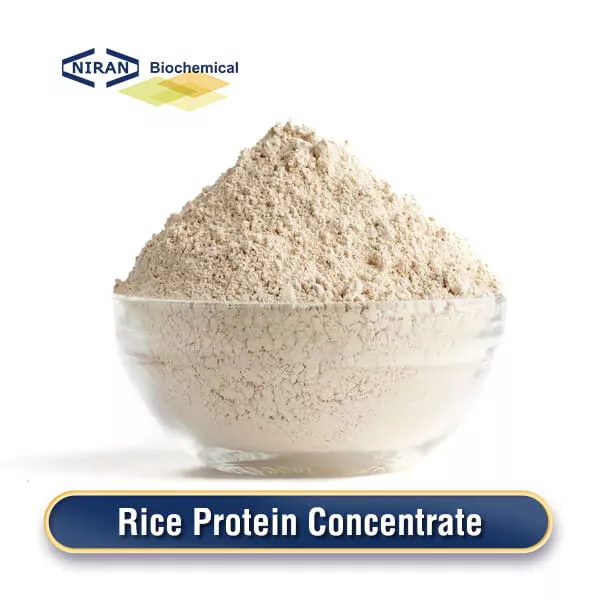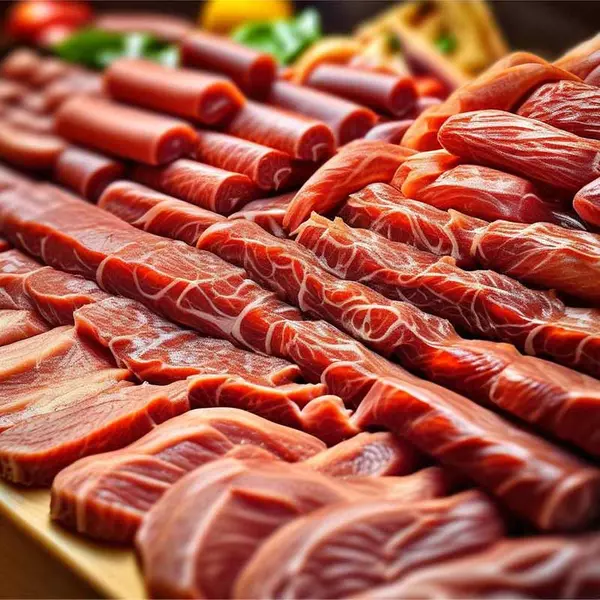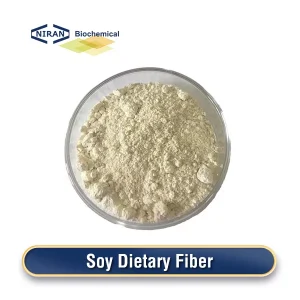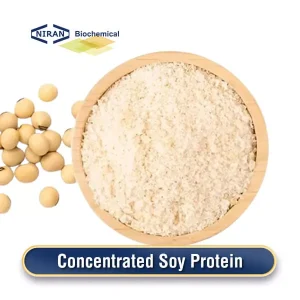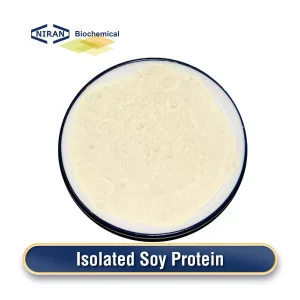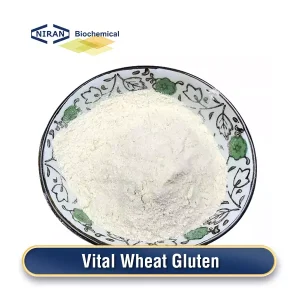What Is Rice Protein Concentrate?
Rice protein concentrate is a high-protein plant-based powder extracted from rice. It is usually white or light beige and contains about 70-80% protein.
It has good solubility and low allergenicity and is widely used in sports nutrition, infant food, plant-based food and baked products. With the growth of the trend of healthy eating, the demand for rice protein concentrate in the global market continues to rise, especially among vegetarians and people with allergies.
The preparation process of rice protein concentrate mainly includes wet extraction and dry extraction. Wet extraction is the current mainstream process, which involves soaking, grinding, separating starch and fiber, concentrating protein and drying rice. It can effectively retain high-purity protein and is suitable for large-scale production.
Spray drying or freeze drying, along with membrane separation technologies like ultrafiltration, are frequently employed in the food and beverage industry.
Dry extraction includes baking, grinding, screening and concentration, but it is rarely used in the production of food-grade rice protein concentrate because it may cause protein denaturation and functional loss.
Wet extraction has become the mainstream preparation process for food-grade rice protein concentrate due to its high efficiency and high-quality protein retention.
Recommended Dosage:
| Food name | Maximum usage(g/kg) |
| Functional drinks | 2-8 g/kg |
| Protein supplements | 15-25 g/kg |
| Fortified foods | 5-15 g/kg |
| Lactose-free foods | 5-15 g/kg |
| High-fiber foods | 5-10 g/kg |
| Healthy snacks | 5-15 g/kg |
| Weight-loss foods | 10-20 g/kg |
| Bakery products | 5-10 g/kg |
| Functional biscuits | 5-15 g/kg |
| Low-sugar foods | 5-10 g/kg |
| Vegetarian burgers | 10-20 g/kg |
| Fortified powders | 10-20 g/kg |
| High-protein breakfast cereals | 5-15 g/kg |
| Energy drinks | 5-10 g/kg |
Rice Protein Concentrate Has A Wide Range Of Uses
- High protein content: Rice protein concentrate contains 70-80% protein, which is a good source of plant-based protein and helps meet high-protein diets.
- Easy to digest: Compared with some other protein sources, rice protein concentrate is easier to digest and absorb, suitable for people with sensitive constitutions and weak digestive systems.
- Low allergenicity: Rice protein does not contain common allergens in dairy, legumes or grains, suitable for people who are allergic to these ingredients.
- Improve food texture: In baked and processed foods, rice protein concentrate can improve the texture and structure of the product and enhance the taste.
- Nutritional fortification: It can enhance the nutritional content of food as a nutritional supplement, particularly in diets when an increase in protein consumption is required.
User Asked Question:
Q: What are the advantages of Rice protein concentrate over whey protein?
A: 1. Rice protein concentrate does not contain dairy and gluten, so it is suitable for people who are allergic to dairy products or sensitive to gluten, as well as those who pursue a dairy-free or gluten-free diet.
2. Rice protein is generally more digestible than whey protein, and may be gentler for some people and will not cause gastrointestinal discomfort or discomfort.
3. Rice protein is a plant protein extracted from rice. It is an important source of protein for vegetarians and is also beneficial to environmental sustainability because rice is a widely grown crop.
4. Rice protein concentrate is generally less allergenic than whey protein and soy protein, and is safer for people who need to avoid common allergens.
5. Rice protein has good customizability in food processing and can adapt to a variety of different food product needs, such as energy bars, cereal bars, etc., which usually need to increase protein content without introducing dairy or soy ingredients.

